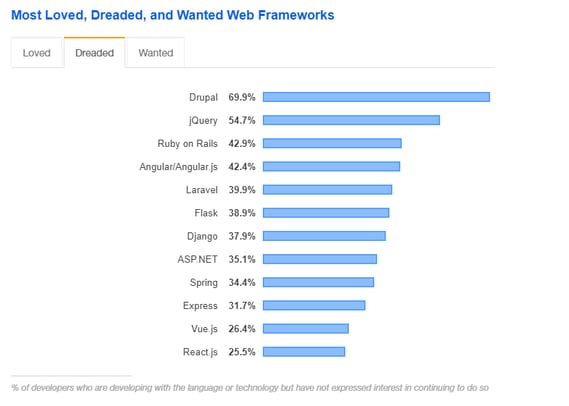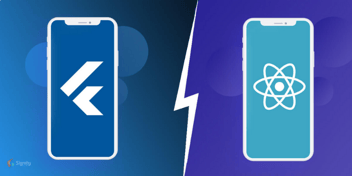Top 7 Cross-Platform Frameworks for 2024: Mobile App Development Made Easy
This article discusses the top cross-platform frameworks for mobile app development in 2024. It reviews Flutter, React Native, Xamarin, Kotlin Multiplatform, Ionic, PhoneGap, and NativeScript, detailing their features, benefits, and how they streamline the development process for creating apps that work on multiple platforms.

Surviving in the Darwinian Digital Age is directly correlated with satiating the perpetual and ever-changing needs of the customers.
And to register these ever-changing needs of the consumers, your business needs to be present, and active on the device ubiquitous to modern-day society-Smartphones.
Mobile app downloads are soaring through the roofs, with Statista suggesting the estimated downloads to top 204 Billion in 2019.
You can create a native mobile app for the two prominent platforms- Google Play Store and App Store, but that could bring up issues in budgeting.
The better alternative?
Leverage a cross-platform app development framework to create hybrid apps compatible with not one but all the major OS’ used by your customers.
Offering innumerable benefits, cross-platform app development frameworks is pervasive across businesses operating in the Digital sphere.
But before we barge right into the best cross-platform frameworks for 2024, let’s establish a clear understanding of some fundamentals regarding mobile app development.
Why are businesses investing in Mobile Apps?
Let’s try to understand the increasing demand for mobile apps by highlighting some real numbers. 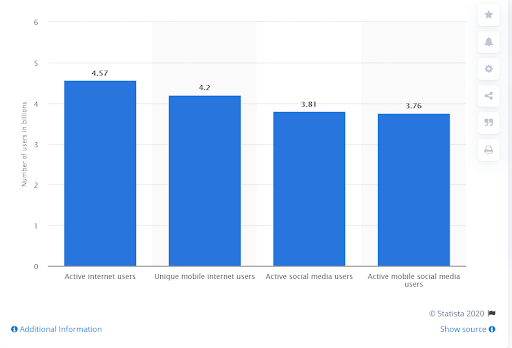
As of April 2024, there are 4.2 unique mobile Internet users in the world. Just let that number sink in.
Why?
For 4.2 Billion accounts for almost 58 percent of the global population.
This particular statistic offers a logical explanation as to why mobile applications and cross-platform app frameworks are all the rage these days.
What is a Cross-Platform App Framework?
Cross-Platform App Framework is the epitome of mobile app development.
In other words, it’s a framework employed by mobile app developers to create mobile applications that can seamlessly run and operate on different platforms but with the same code-base.
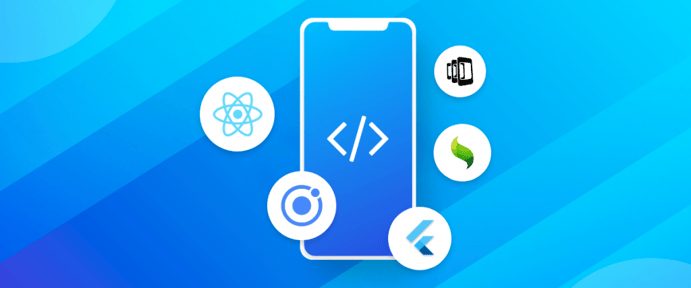
Mobility solution providers are harnessing cross-platform app framework for it offers businesses a myriad of benefits, including low costs, code reusability, easy cloud integration, and more.
Albeit the great benefits, there are certain restrictions such as navigation and control elements that often tag along.
Rest assured, we’d be outlining both the pros and the cons of the top 5 cross-platform frameworks for mobile app development in 2024.
But first, let’s highlight the key benefits of the Cross-platform mobile app framework for your business.
What are the Benefits of Cross-Platform Mobile App Frameworks?
Emerging technologies and engaging hybrid mobile apps are changing the way businesses operate today! Mobility is becoming integral to our everyday routines, making it essential for enterprises to consider the mobile-first approach.
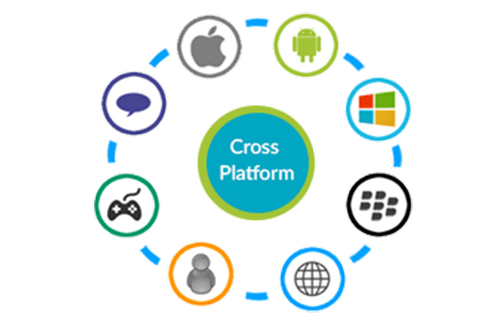
Outlined below are the upsides of cross-platform app development frameworks for businesses:
1. Code Re-usability
Cross-platform mobile app development promotes code reusability. That is, developers can code just once, and reuse the same codebase to run the apps on other platforms. This eliminates repetitive tasks, and in turn, saves operational costs.
2. Quicker Development Time
Creating a single codebase for multiple platforms helps to cut down development efforts by 60 to 80%. This enables your business to create rich and intuitive mobile applications- for less costs, and in less time.
3. Reduced Costs
It’s simple math: Less time, resources, and efforts spent in mobile app development is directly proportional to lower costs.
As developers need to develop just a single source code, not only it quickens the development timeline, but also promotes testing, deployment, and ongoing support.
4. Easy Cloud Integration
The added benefit of utilizing a cross-platform app development framework is easy cloud integrations with the hosting services. Developing a cross-platform hybrid app means that your business’ mobile app can readily benefit from all the cloud hosting services.
5. Easy Maintenance
Since mobile app developers need to develop just a single source code, maintaining, passing update packages, and making changes is relatively easy.
Updates and changes once made, can be synched over all the platforms and devices in an instant- saving time, money, and efforts.
Now, to the main bit.
Cross-Platform App Development Frameworks to Consider in 2024
There are a plethora of cross-platform app development frameworks available in the market, with each having its own pros and cons.
Closely scrutinizing the trend, the advantages, and the tagged disadvantages, we’ve handpicked the best cross-platform app development frameworks for your business in 2024.
1. Flutter
Flutter is Google’s contribution to the open-source mobile app development platforms.
Although released in 2018, this SDK stands tall amongst the best cross-platform app development frameworks for mobile app development.
Google defines Flutter as a ‘UI toolkit for building beautiful, natively compiled applications for mobile, web, and desktop from a single codebase’.
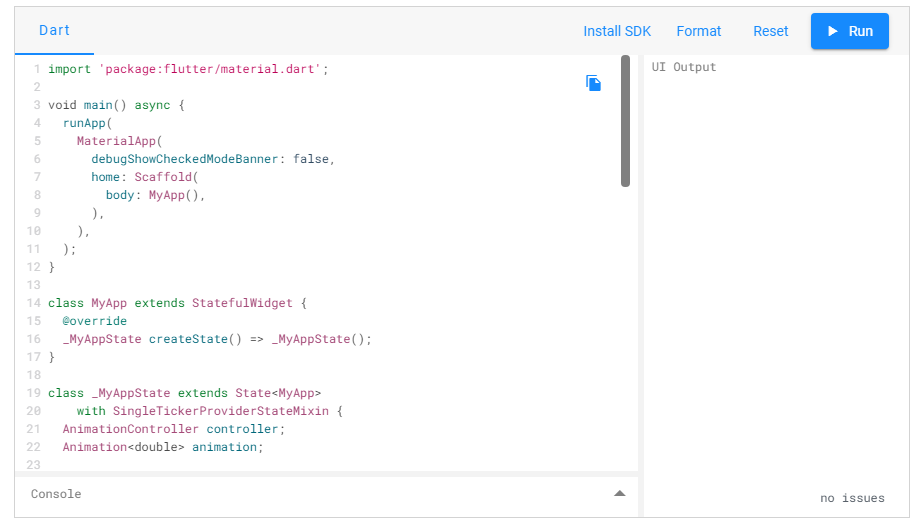
Flutter, an object-oriented language, essentially works on Dart coding language; whilst extending support for multiple languages including C, Swift, Java, and more.
Flutter Pros
|
Flutter Cons
|
2. React Native
React Native is Facebook’s contribution to the open-source mobile app development platforms.
React Native, as the name suggests, offers an intuitive native development platform fundamentally based on React- a JavaScript library leveraged by mobile app developers to build intuitive UI Interfaces.
There are many upsides to JavaScript framework, including but not limited to, easy integration with existing and on-going projects, quick testing, and an enormous built-in library.
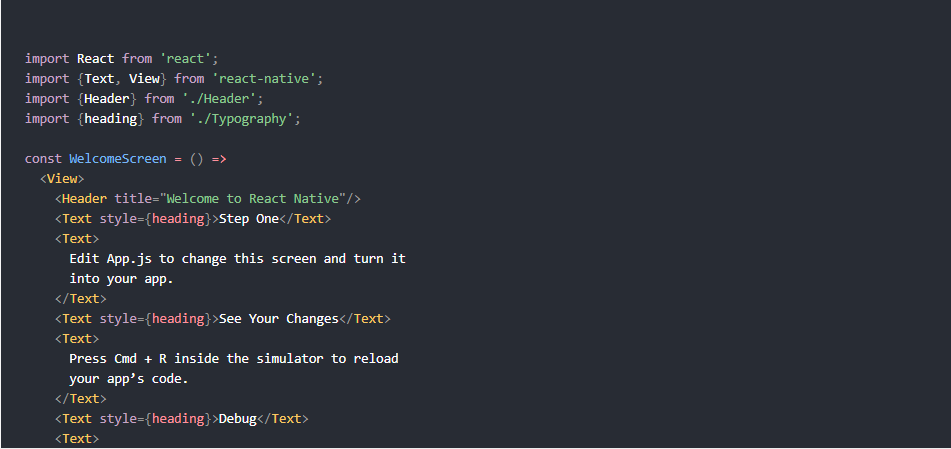
Be aware though, React Native isn’t for novices. Your startup, or enterprise for that matter, needs a team of professionals to create decent apps and generate great rewards using this cross-platform app framework.
React Pros
|
React Cons
|
Related Read: Flutter vs React in 2020: We Help You Decide What’s Best!
3. Ionic Framework
Ionic framework, an incredible open-source cross-platform app framework, is licensed by MIT.
Inheriting certain elements from both the Android and iOS, Ionic is ideally the first choice for Mobile App Development. Another reason for its popularity pertains to the benefits.
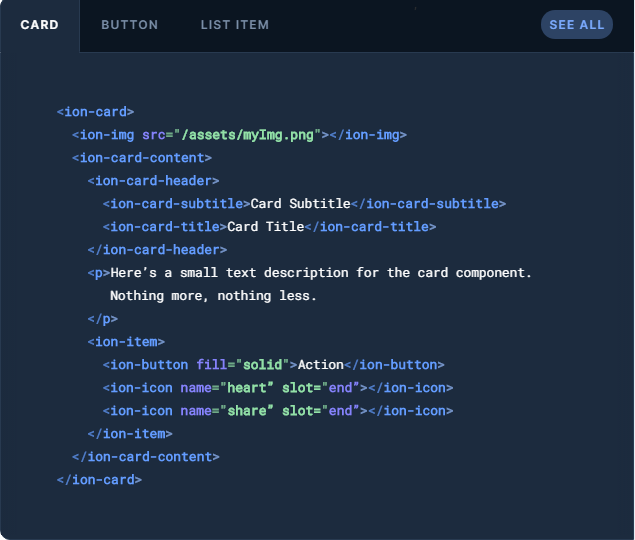
Here’s a data-point for your reference:
A study suggests that apps built on the Ionic framework have recorded a rise of 53.3% since 2019.
Ionic Framework shares similarities with AngularJS, and uses languages like HTML5, CSS, and JavaScript for translations.
Another benefit? The platform has quite recently added support for React.
Ionic Pros
|
Ionic Cons
|
4. Xamarin
Xamarin is an open-source platform, owned and maintained by Microsoft.
This cross-platform app framework is essentially different from the ones we’ve discussed so far- for Xamarin is based on WORA (Write once run any model).
What is WORA?
According to Whatls.com, ‘Write once, run anywhere (WORA) is a term that refers to a particular program's supposed ability to run on all common OSs (operating systems)’.
The term, however, was first coined by Sun Microsystems in reference to Java.
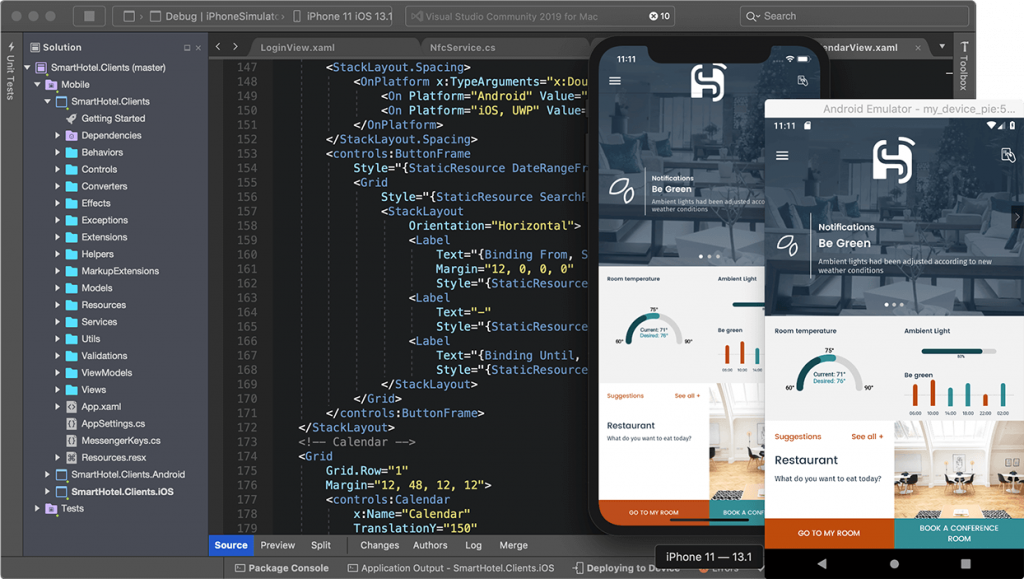
An open-source cross-platform mobile app development platform, Xamarin was launched to resolve the problems associated with native technology stacks.
What problems, you ask?
To help mobile app developers with the technical difficulty and huge expenses associated with mobile app development.
Our team of expert full-stack developers can help you create a responsive and scalable mobile app using the latest tools, technologies, and APIs. Contact Us. |
Based on .NET language, this particular framework enables the developers to share 75% of the code across different platforms.
Xamarin pros
|
Xamarin Cons
|
5. Adobe Phonegap
Phonegap is an open-source, cross-platform app framework created by Adobe.
Web developers acutely familiar with languages including HTML, CSS, and JavaScript can code intuitive mobile apps in Adobe Phonegap.
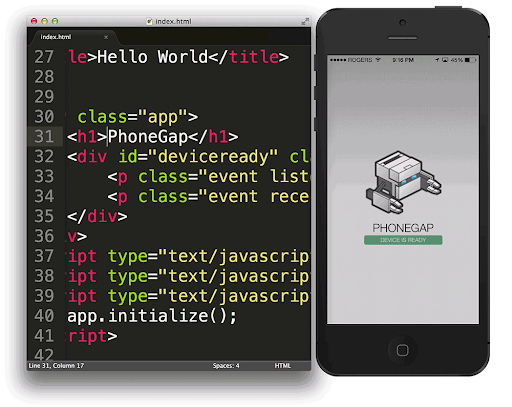
Adobe Phonegap (earlier referred to as Adobe Cordova) is widely acclaimed for radically improving the mobile app development, thanks to the robust Phonegap toolset, and a strong community.
The best bit?
Adobe Phonegap enables mobile app developers to code, and play with different languages without any hardware restrictions.
Phonegap’s Pros
|
Phonegap’s Cons
|
Well, those were some honorable cross-platform app framework mentions for 2024. But there’s still more. Wonder what?
6. Node.Js
Node.Js is an extremely powerful open-source, capable of handling multiple concurrent processes at a time.
The Node.Js runtime is a cross-platform app framework that’s built on Chrome’s v8 Javascript engine.
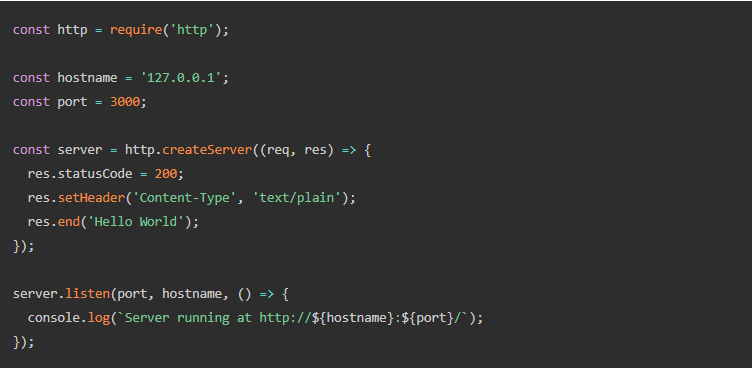
For an added context, v8 Javascript is a Google’s open-source web assembly engine written in C++.
Every popular cross-platform app framework generally supports an in-built library, but the one that comes equipped with Node.Js is impressive ion terms of features, speed, functionalities, and execution.
Node.Js Pros
|
Node.Js Cons |
7. Sencha Touch
Sencha Touch is best-used for apps that employ hardware acceleration techniques.
Introduced a decade ago, Sencha Touch is popular amongst mobile app developers for creating native-looking themes, with options for easy testing, integration for UI components, and huge libraries.
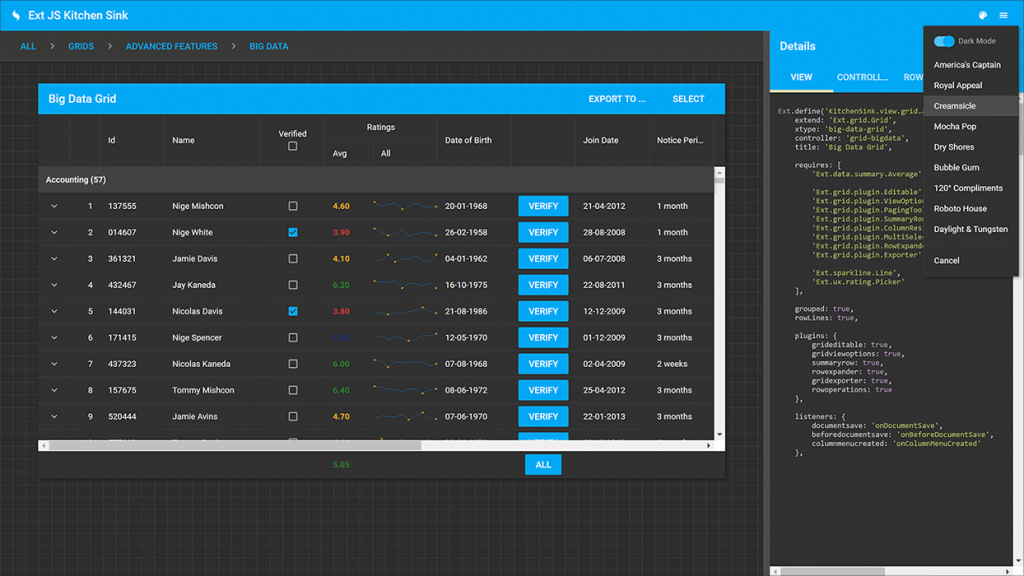
The upside of working with Sencha Touch?
It’s amongst the rare cross-platform app development frameworks that enable the developers to code and maintain large business applications quite effectively. Sencha Touch is also popular for inbuilt Cordova integration.
Sencha Touch Pros
|
Sencha Touch Cons
|
Web framework Analysis for 2019
When outlining the best cross-platform mobile app frameworks for 2024, it’s imperative to mention the most loved, dreaded, and wanted web frameworks for 2019.
Why though?
The simple answer would be for better context, comparison, and understandability.
Here are the results from Stack Overflow’s Developer Survey 2019.
The Most Loved App Development Frameworks for 2019
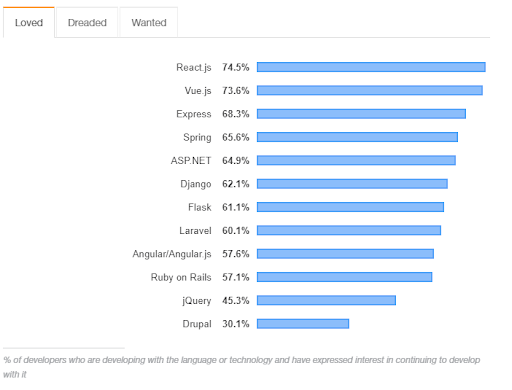
Dreaded Web Frameworks for 2019
Most Wanted Web Frameworks for 2019
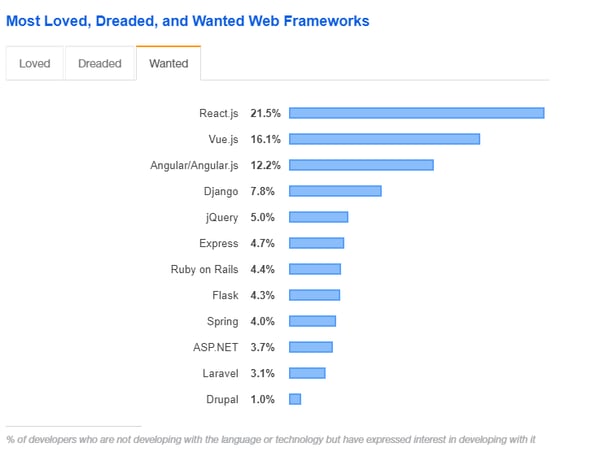
Though, it goes without saying that these statistics are subjective, and what works for you might not work for other mobile app developers.
At Signity, our expert mobile app developers strive to deliver the right mobile app solutions, that’s scalable, and relevant to your business niche.
Having delivered hundreds of mobile app solutions, rest assured that your concepts are in the hands of the best mobility solution providers in India.



.png?width=344&height=101&name=Mask%20group%20(5).png)

